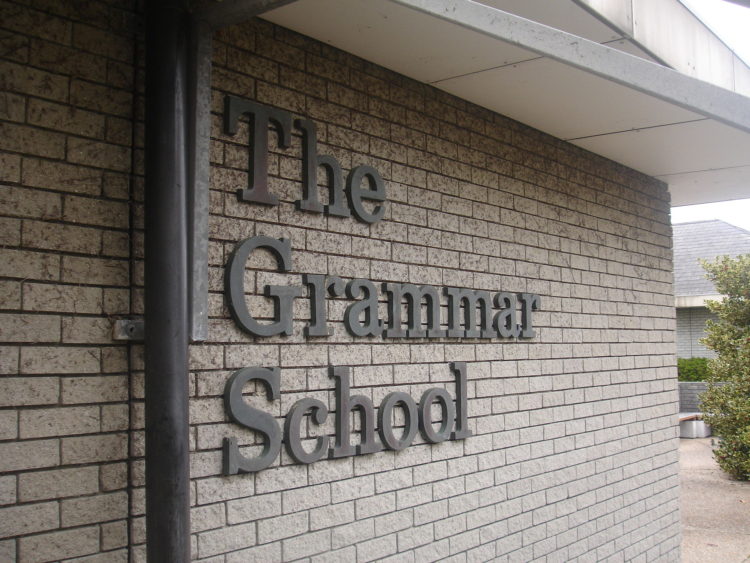By Lucy Caulkett-
A lack of official scrutiny of grammar school 11 plus tests in the Uk is a problem, according to campaigners who claim gender and age bias with nobody taking responsibility.
The Department for Education and Schools Adjudicator have both distanced themselves from any responsibility for tests. Comprehensive Futures say There is a “deeply worrying” lack of official scrutiny of 11-plus grammar school admissions tests and the Department for Education is “not prepared to take responsibility,” campaigners claimed today.
The anti-selection group Comprehensive Future says both gender bias and age discrimination in the tests are tarnishing the integrity of the annual exams. The exams taken by around 100,000 Year 6 grammar school hopefuls every year is often set at a high standard ideal for children who study hard and in many cases, also have the benefit of tuition’. Campaigners say the tests do not take into account disadvantaged pupils or the impact of the tests on those groups.
.Comprehensive Future says the Department Of Education has called for any objections to a school’s admission policy to be lodged with the Schools Adjudicator.” In doing so, the D&E is being accused of abdicating its responsibility. The Office of the Schools Adjudicator (OSA) denied responsibility, and said it has “no remit in relation to 11-plus tests themselves. Admission tests and arrangements vary for different grammar schools, with no standardised measure of the criteria.
They all generally require 10 year old pupils to be prepared for the standard of the tests by reading consistently in the final primary school year, and going through several past questions under the supervision of academic or tutor. One problem spotted is the tendency for older people in some cases to take a test on behalf of someone younger. Campaigners say The group also says there have been incidents of test questions being leaked to tutors, and a systematic failure among schools to verify the identities of pupils taking the test”.
Comprehensive Future chair, Nuala Burgess said: “It seems wrong that every aspect of education, from SATs to Progress 8, to percentages of students progressing to university, are subject to intense scrutiny while a blind eye is turned to all the problems with the 11-plus and grammar school admissions.
“Grammar schools are state-funded schools and should be subject to exactly the same kind of scrutiny and accountability as other state-funded schools.
“The DfE is effectively leaving it to parents to develop the necessary expertise to be able to challenge a host of anomalies and inconsistencies which exist in all the different 11-plus tests out there.
“The assumption appears to be that parents have the time and resources to do this. Either that, or we must assume the DfE doesn’t care about the unfairness which riddles the 11-plus tests, and the lack of an official body to oversee how it is administered.”
A freedom of information request lodged by the campaigners showed a total of 147 of the 163 grammar schools used a standard admissions test produced either by one of two assessment providers (GL and CEM). A minority used “unbranded school-devised tests,” and the “super selective” grammars selected pupils based on highest rankings rather than a pass mark.
Dr Burgess added: “The inconsistencies in the different types of 11-plus tests and the ways in which different grammar schools administer their pass rates and appeals processes, suggest there is something wrong with the entire grammar school admissions system. This is only possible because no official body has responsibility for overseeing test admissions.”
But Jim Skinner, Grammar School Heads Association chief executive said the claims were “unfounded.”
“The few schools that were not using age standardisation have now introduced it,” he said. “In this respect they are fairer than KS2 Sats which do not use age standardisation.
“A great deal of work has been carried out by grammar schools and the test providers to ensure the tests are fair, including ensuring there is no gender bias. On the rare occasions that questions have been leaked these have been removed from the question banks so they will not be used in the future. In these respects test providers apply a level of rigour on a par with that used by exam boards for public exams.
“Schools and local authorities employ a range of valid methods to verify the identity of pupils sitting the tests where these are not sat in primary schools.
“The selection tests form part of the admissions arrangements and are covered by the School Admissions Code. As such, there has been extensive scrutiny through objections, mostly made by anti-selection campaigners, to the OSA.
“On the rare occasions that the OSA has found there was a problem with a grammar schools admission arrangements, the required changes have been made.”
A Department for Education spokesperson said: “It is for individual schools’ admission authorities to set their admission arrangements, in line with the School Admissions Code. In the case of selective schools, this will include arrangements for selection tests

